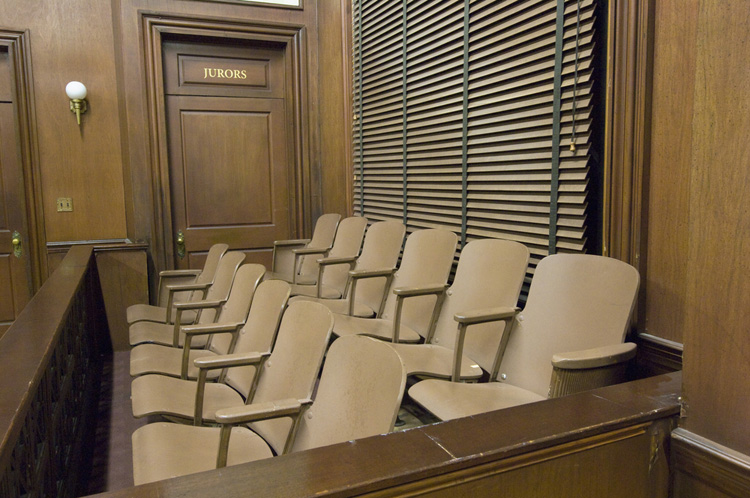Supreme Court should end nonunanimous juries, ABA argues in amicus brief

Image from Shutterstock.com.
It’s time to extend the Sixth Amendment right to a unanimous jury to the states, the ABA argues in an amicus brief submitted this week to the U.S. Supreme Court.
The brief was filed in Ramos v. Louisiana, a criminal appeal the court has accepted for its fall 2019 term. The Sixth Amendment guarantees unanimous jury verdicts in criminal cases; Evangelisto Ramos argues that the justices should apply that to the states using the 14th Amendment.
The ABA’s amicus brief strongly agrees.
“The court’s precedents on the Sixth Amendment and on incorporation make clear that unanimity is required in state and federal courts alike,” the brief says. “The ABA therefore respectfully submits that the court should bring to an end this unusual and unfortunate aspect of our criminal justice system.”
It’s undisputed that the Supreme Court has said the Sixth Amendment right to an impartial jury includes the right to a unanimous jury in federal court. However, despite rulings extending other parts of the Sixth Amendment to the states, the court declined to extend the unanimous jury provision in 1972. That ruling came in Apodaca v. Oregon, an unusual plurality decision where the justices split 4-1-4, with Justice Lewis Powell’s one-justice concurrence becoming law. (The other justices would have either applied the unanimous jury provision to the states or found that no unanimous jury provision applies to any court.)
Since then, only Oregon and Louisiana have permitted non-unanimous juries. as the ABA Journal reported in May, Oregon voters may get the chance to vote down nonunanimous juries in 2020; Louisiana voters did that last fall. Ramos was convicted in 2016, before the change in Louisiana, on a vote of 10-2.
The ABA’s amicus brief focuses heavily on why Apodaca should not be considered good precedent. That argument starts with other cases that consistently find a Sixth Amendment right to unanimous juries at the federal level. The brief then goes on to argue that that provision should be applied to the states, saying it is “fundamental to our scheme of ordered liberty, or deeply rooted in this nation’s history and tradition,” under the recent Timbs v. Indiana. The right to a jury trial, a public trial, assistance of counsel and to confront one’s accuser have all been incorporated, the brief says; to isolate the unanimity right would be inconsistent with precedent.
Furthermore, the brief says, the unusual split decision in Apodaca means the decision that became law was authored by only one justice, eroding the case for adhering to it solely because it is precedent. Additionally, there’s only a minimal argument that states are relying on it, as only Oregon continues to permit split juries.
“The court, quite rightly, does not often overrule its precedents, but the status of Apodaca as a precedent, other than the bare outcome, is doubtful,” the brief says.
The brief also argues that the histories of the nonunanimous jury laws in both Oregon and Louisiana are tainted by overt racism. The Louisiana provision arose after Reconstruction, at a constitutional convention whose members expressly said their mission was “to establish the supremacy of the white race in this state to the extent to which it could be legally and constitutionally done.” In Oregon, the provision was adopted by ballot measure after a high-profile murder in which a Jewish man was convicted of manslaughter rather than murder because of a holdout juror.
Finally, it says there’s evidence that racism continues to taint nonunanimous juries today, with more African American than white defendants in Louisiana convicted in this way. Furthermore, studies undertaken since 1972 have shown that unanimity requirements create more thorough and careful decisions because they require jurors to consider minority viewpoints. This protects not only minority viewpoints but racial, class, gender and other demographic minorities, whose members are less likely to make up the majority on a jury.
“Just as confidence in the jury system suffers when potential jurors of particular categories (such as race and sex) are excluded from serving,” the brief says, “so too does it suffer when the jury operates under rules that would allow a majority to treat the criminal justice system as its exclusive province.”
The ABA House of Delegates voted at the 2018 ABA Annual Meeting in Chicago to oppose nonunanimous juries, in Resolution 100B. The resolution had the support of both the Oregon State Bar and ABA President-elect Judy Perry Martinez. Martinez will succeed ABA President Robert Carlson at the August ABA Annual Meeting in San Francisco.



